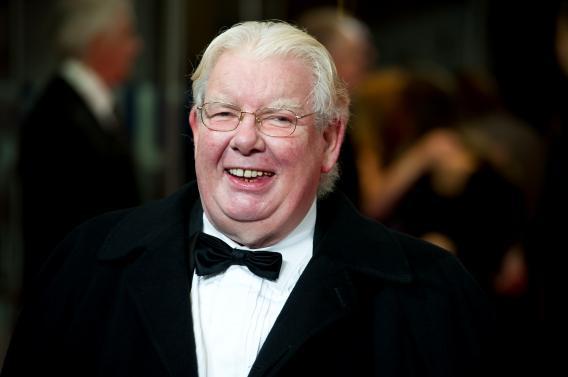Nothing says more about actor Richard Griffiths, who died yesterday at 65 after complications from heart surgery, than the warmth of his fellow actors’ remembrances. Griffiths was best known for his roles as a pair of gruff film uncles—the despicable Vernon Dursley in the Harry Potter movies and creepy Monty in Withnail & I—but his filmography was long and his stage credits extensive. Typical was a tribute from Harry himself, Daniel Radcliffe, who worked with Griffiths in both his film and stage debuts. Talking about their work together on Broadway in Peter Shaffer’s Equus, Radcliffe said, “It was my first time doing a play but, terrified as I was, his encouragement, tutelage, and humor made it a joy. In fact, any room he walked into was made twice as funny and twice as clever just by his presence. I am proud to say I knew him.”
Griffiths’ unpretentious sweetness—he was a working-class Yorkshireman whose parents were both deaf—shines through in this 2006 appearance on CUNY TV’s Theater Talk, where he spoke about his experiences doing Alan Bennett’s play The History Boys around the world. (The role of schoolteacher Hector won him a Tony in New York and an Olivier in London.)
Reading the obituaries and tributes, phrases like “larger than life” or “an oversized presence” appear with astonishing frequency. Leave it to the Brits to put it more plainly: Writing in the Telegraph, Andrew W. Brown said, “He was dangerously fat, for a very long time.” This was, without doubt, Griffiths’ outstanding physical characteristic, and it would be silly not to mention it. I saw him twice on Broadway—his magical performance in The History Boys and in Equus—and both times I worried that he might not survive until curtain. He was very, very big, and yet he thrived as a stage actor, which requires good lungs, nerves of steel, and a strong body.
It’s even possible that audience members’ worries about Griffiths’ health added to their enjoyment of his performances. One of the reasons live theater is so exciting is that doom constantly hovers over the stage: forgotten lines, muffed stagecraft, or botched stunts could spell ruin at any moment. No one goes to the theater hoping something will go wrong, but the knowledge that it could enhances the thrill of the experience. Of course, the most dreaded mishap during a Griffiths performance was the ring of a cell phone: He was renowned for stopping plays to shame their owners. When a 2005 West End production he was starring in was interrupted by a ringtone, he halted the show and addressed the culprit from the stage: “Could the person whose mobile phone it is please leave? The 750 people here would be fully justified in suing you for ruining their afternoon.”
Thanks to Richard Griffiths, I always triple-check that my cell phone is turned off at the theater. The memory of his transformative performances gets me there in the first place.
